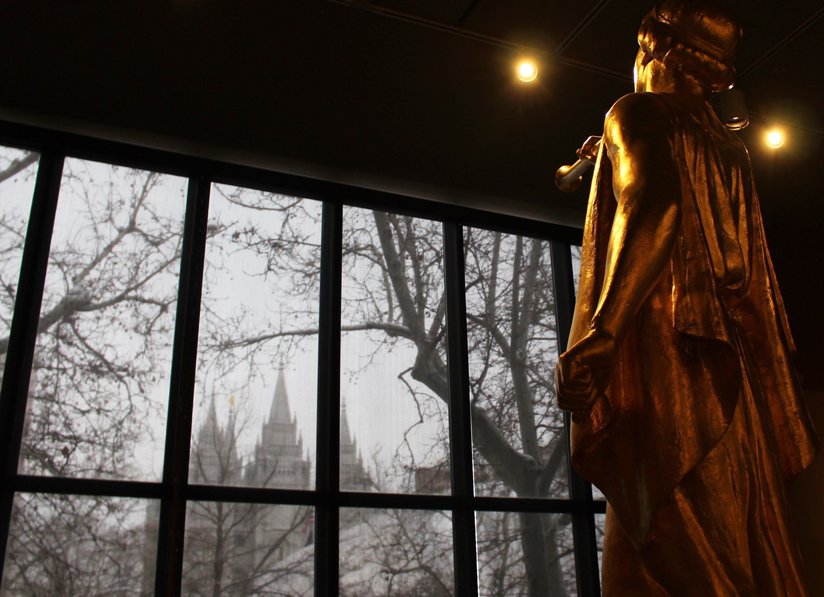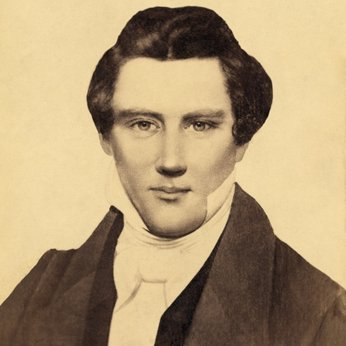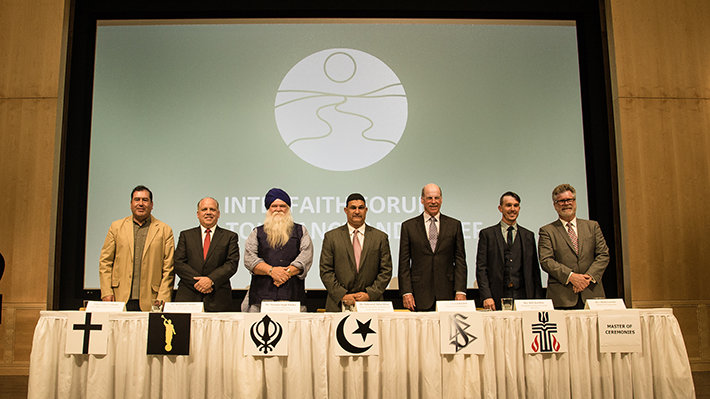Lessons I Learned Growing Up Mormon
More than 70% of the United States consider themselves Christian, and nearly one third of the world’s population, making it the largest religion in the world. But overall, attendance is on the decline (as little as 20% regular attendance, by some accounts), and Christianity, as a whole is shrinking.
But one sect of the Christian world has a relatively short history, and is yet experiencing rapid and continuing expansion: the Mormons.[1]
While The Church of Jesus Christ of Latter-day Saints officially downplays its growth, I’d argue that there are a few key points that help keep the group strong.
Lessons we can all learn from, regardless of faith.
Here are four of my faves.

Edify One Another
I grew up in the south, where hair is big and religion is bigger: mega-church big.
Mormons were different. Not the wearing-black-and-avoiding-ornament humility of the Mennonite faith, but quiet in their own way: no swearing, no drinking, and church boundaries divided by geographic location, not by the popularity of a specific preacher (they have a lay ministry anyway).
I’d say that’s part of why Latter-day Saints have such a recognizably strong community: you go to church with the same people you might go to school with—the people who live near you.
And while every church, just about, had youth groups and Sunday school and the occasional church potluck, the Church of Jesus Christ had activities all the time. Dances for youth and singles, early morning seminary, basketball tournaments, theatrical performances, and on and on.
This is why many people seek a congregation or a group in the first place: to surround themselves with a community that builds you up, and helps you be a better version of yourself.
What really stood out, to me, though, was service to the community:
● If you moved, the congregation where you were moving, whom you hadn’t even met yet, would show up to help you unpack.
● If you had a baby, people would give you just about anything you needed, from diapers to childcare.
● If you got married, the service was free, the organist was free, a member would often even make your cake and your dress… Considering the costs of average American weddings, couples often save thousands of dollars on their nuptials.
● If someone is sick, or there’s a death in the family, you can pretty much count on casseroles showing up day after day to feed your family.
Those are really just a few examples, but they stood out to me. It came down to a word I fell in love with: edify.
Edify: to build up or improve.
Mormons use the King James version of the Bible. In Paul’s first letter to the Thessalonians, it says, “Wherefore comfort yourselves together, and edify one another, even as also ye do” (1 Thess. 5:11).
I’d argue that this is why many people seek a congregation or a group in the first place: to surround themselves with a community that builds you up, and helps you be a better version of yourself, even as you also help others.
In the World, But Not of It
The bad rep that a community often gets can come down to an isolationist approach.
I get it.
It’s easier to fill your social media feed with people whose ideology matches your own.
It’s reassuring to get your news in an echo chamber.
It’s comforting to stick to the same core group of friends.
Community is fantastic, isolation, not so much.
But if we never speak about our differences in ideology, we never have the chance to learn from one another—to grow in empathy, and even strengthen our own commitment as we test our personal beliefs against the challenges of the outside world.
In the Church of Jesus Christ there’s this concept: “be in the world, but not of it.”
It’s backed by some of their other scripture, The Doctrine and Covenants, written by their first leader, Joseph Smith (a little more about him later).
He said, “Therefore, go ye into all the world; and unto whatsover place ye cannot go ye shall send, that the testimony may go from you into all the world unto every creature” (84:62) and also, “Now here is wisdom, and the mind of the Lord—Let the house be built, not after the manner of the world, for I give not unto you that ye shall live after the manner of the world” (95:13).
While on the one hand these messages could seem about proselytizing (and possibly church building?), the other message is that you need to get out there.
Get to know your neighbor.
Volunteer somewhere.
Have a conversation about something you don’t agree with—but be respectful about it.
It’s a great lesson to learn.
Endure to the End

(Photo by Everett Historical/Shutterstock.com)
Now, about Joseph Smith.
The man was tarred and feathered[2] more than once and driven from his home in upstate New York before finally being killed in Illinois.
His group relocated to their present-day headquarters in Salt Lake City, Utah (then not yet a state, rather a U.S. territory), to avoid further persecution.
That move was prompted by an order from the governor of Missouri: an extermination order on any Mormon, which was not rescinded until 1976.
Endurance in the face of persecution. Kindness, even while escaping that persecution. Forgiveness, even of those who persecute you.
Those concepts vein through nearly every faith on earth.
We can all learn from them.
Let Them Worship How, Where or What They May
Despite the intolerance faced by many members of The Church of Jesus Christ of Latter-day Saints, they preach and practice religious tolerance.
While I believe that concept to be core to Christianity, in practice it doesn’t always happen that way.
Particularly growing up in the Bible Belt, arguments of faith, practice and semantics happen, even between Christians, within families… across the table at Thanksgiving dinner.
Mormons set a good example of religious tolerance.
Founder Joseph Smith captured this core belief when he wrote what was originally a letter and became known as “The Articles of Faith”:
“We claim the privilege of worshiping Almighty God according to the dictates of our own conscience, and allow all men the same privilege: let them worship how, where or what they may.”
I think this is a lesson we can all learn from.
We don’t have to agree to get along.
The hows and the wheres and the whats of worship can look very different.
Who cares?
We have our humanity in common, when we remember to use it.
I learned that growing up Mormon.
[1] A note about terminology: “The Church of Jesus Christ of Latter-day Saints” is quite a mouthful. Plus, their scripture (alongside the Bible) is called The Book of Mormon, after a man in the text. Despite their attempts to distance themselves from the name, the terms “Mormons” and “Mormon” are still commonly used by non-members.
[2] Tarring and feathering was a practice in early US history, intended to harm and humiliate one’s enemy, but not kill. A warm pine tar mixture was poured over the victim, before being covered in feathers, a gooey mixture that could take days or weeks to fully remove.










